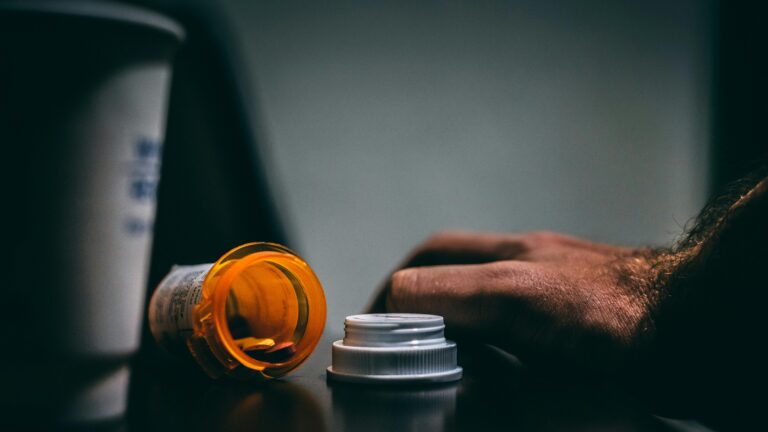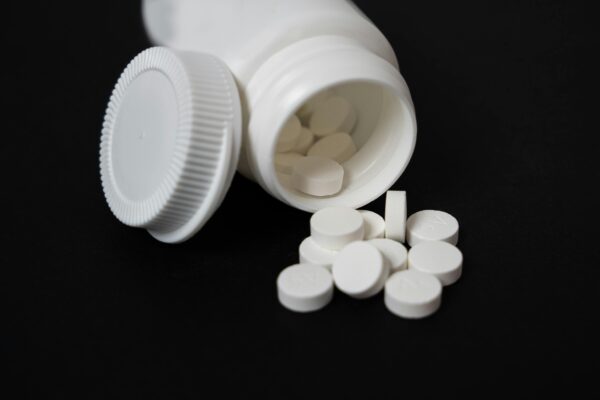Erectile dysfunction (ED) is a condition that affects millions of men worldwide. The causes of ED are multifactorial, ranging from physical health issues to psychological factors. One potential culprit is medication, and sertraline, a commonly prescribed antidepressant, has been identified as a factor in erectile dysfunction for some men. If you’re dealing with erectile dysfunction while on sertraline, you’re not alone, and there are ways to manage the situation. In this comprehensive guide, we’ll explore the relationship between sertraline and erectile dysfunction, how the drug affects your body, and what you can do to address the issue effectively.
- What Is Sertraline?
- How Sertraline Contributes to Erectile Dysfunction
- Common Symptoms of Sertraline-Induced Erectile Dysfunction
- Managing Sertraline-Induced Erectile Dysfunction
- The Bottom Line: Don’t Let Erectile Dysfunction Control Your Life
- Studies on Sertraline and Erectile Dysfunction
- 1. The Impact of SSRIs on Sexual Function: A Comprehensive Study (2001)
- 2. A Randomized Controlled Trial on SSRI-Induced Sexual Dysfunction (2007)
- 3. The Role of Serotonin and Dopamine in Erectile Dysfunction (2010)
- 4. Managing SSRI-Induced Sexual Dysfunction: A Meta-Analysis (2014)
- 5. The Effects of Sertraline on Testosterone Levels (2016)
- Key Takeaways from the Studies
- Studies on Sertraline and Erectile Dysfunction
- FAQs: Sertraline and Erectile Dysfunction
- Question: Can sertraline cause erectile dysfunction?
- Question: How common is erectile dysfunction with sertraline?
- Question: Can erectile dysfunction caused by sertraline be reversed?
- Question: Are there any ways to reduce erectile dysfunction while taking sertraline?
- Question: Should I stop taking sertraline if I experience erectile dysfunction?
What Is Sertraline?
Sertraline is a selective serotonin reuptake inhibitor (SSRI) that is primarily used to treat conditions such as depression, anxiety, panic disorders, and obsessive-compulsive disorder (OCD). It works by increasing the levels of serotonin in the brain, a neurotransmitter that plays a crucial role in regulating mood, sleep, and appetite.
While sertraline is generally well-tolerated and effective in treating mood disorders, it comes with a range of potential side effects. One of the more commonly reported side effects is its impact on sexual function. For some men, this can manifest as erectile dysfunction, reduced libido, or difficulty reaching orgasm. Understanding why this happens can help you take appropriate steps to address it.
How Sertraline Contributes to Erectile Dysfunction
Sertraline, like other SSRIs, works by altering the balance of neurotransmitters in the brain. While this is beneficial for treating mood disorders, it can also affect the physiological processes required for sexual arousal and function. Here are a few ways sertraline can contribute to erectile dysfunction:
1. Reduced Dopamine Activity
Dopamine, a neurotransmitter associated with pleasure and motivation, plays a vital role in sexual arousal and the ability to achieve an erection. Sertraline, by boosting serotonin levels, can interfere with dopamine production and activity. When dopamine levels are reduced, it can lead to a lack of sexual desire and difficulty achieving or maintaining an erection.
2. Impact on Nitric Oxide Production
Nitric oxide is a chemical compound that helps relax the muscles in the blood vessels, enabling better blood flow to the penis, which is essential for an erection. Sertraline can interfere with nitric oxide production, making it more difficult for men to achieve an erection even when sexually aroused.
3. Psychological Effects of Antidepressants
Antidepressants like sertraline can also contribute to erectile dysfunction through their psychological effects. As the drug works to alleviate symptoms of anxiety and depression, it can simultaneously dampen the emotional excitement and desire that are necessary for sexual arousal. Even if you’re not experiencing the same level of anxiety or depression, you may still feel emotionally detached or less interested in sex, which can affect your ability to perform sexually.
Common Symptoms of Sertraline-Induced Erectile Dysfunction
If you’re on sertraline and experiencing erectile dysfunction, it’s important to recognize the symptoms and understand that you’re not alone in facing this issue. The symptoms can vary in severity but often include:
- Difficulty achieving or maintaining an erection
- Reduced libido or interest in sex
- Delayed or absent ejaculation
- Difficulty reaching orgasm
- Emotional detachment from sexual experiences
If you notice any of these symptoms, it’s essential to speak with your healthcare provider. They can help assess the situation and determine whether sertraline is the root cause of the issue.
Managing Sertraline-Induced Erectile Dysfunction
The good news is that erectile dysfunction caused by sertraline is often temporary and manageable. Here are several strategies that might help alleviate the symptoms and improve your sexual health:
1. Speak with Your Doctor
The first and most important step in addressing erectile dysfunction caused by sertraline is to have an open conversation with your doctor. They may suggest adjusting your dosage, switching to a different medication, or exploring additional treatments to counteract the sexual side effects. It’s crucial to avoid making any changes to your medication regimen without professional guidance.
2. Consider a Dose Adjustment
In some cases, the dose of sertraline can be lowered to reduce the risk of sexual side effects. However, this should only be done under the guidance of your doctor. A lower dose may still be effective for managing your mood disorder while minimizing the risk of erectile dysfunction.
3. Switch Medications
If reducing the dose doesn’t resolve the issue, your doctor may recommend switching to a different antidepressant with a lower risk of sexual side effects. There are many alternative medications available, such as bupropion or mirtazapine, that are less likely to cause erectile dysfunction.
4. Consider Adding a Medication for Erectile Dysfunction
If the erectile dysfunction persists even after adjusting the sertraline dosage or switching medications, your doctor may prescribe an additional treatment for erectile dysfunction, such as sildenafil (Viagra) or tadalafil (Cialis). These medications can help improve blood flow to the penis, making it easier to achieve and maintain an erection.
5. Lifestyle Modifications
Making certain lifestyle changes can also help improve your sexual health and mitigate the effects of erectile dysfunction. Regular exercise, a healthy diet, and stress management techniques can all contribute to improved erectile function. Additionally, cutting back on alcohol and quitting smoking can enhance blood flow and improve your overall well-being.
6. Psychological Support
Since sertraline can also impact your emotional and psychological well-being, working with a therapist or counselor might help you address any mental health or relationship issues that are contributing to the problem. Therapy can help you develop a healthier mindset around sex and intimacy, which can improve your sexual function over time.
The Bottom Line: Don’t Let Erectile Dysfunction Control Your Life
Dealing with sertraline-induced erectile dysfunction can be frustrating, but it’s important to remember that you’re not alone. Many men face similar challenges, and there are plenty of ways to manage and overcome the issue. By taking proactive steps such as talking to your doctor, making lifestyle changes, and considering other treatment options, you can regain your confidence and enjoy a satisfying sex life again.
Don’t let erectile dysfunction hold you back from enjoying a fulfilling and active lifestyle. The key is to take action, stay informed, and work with your healthcare provider to find the right solution for your specific situation.
If you’re struggling with erectile dysfunction caused by sertraline, remember that it’s just one part of the bigger picture, and with the right approach, you can regain control over your health and well-being.
Take care of yourself, stay proactive, and never hesitate to seek help when you need it. You’ve got this, and better days are ahead!
Studies on Sertraline and Erectile Dysfunction
Several studies have explored the relationship between sertraline and erectile dysfunction. These studies provide valuable insights into how SSRIs, like sertraline, affect sexual function in men. Understanding the findings from these studies can help you better grasp the nature of sertraline-induced erectile dysfunction and its potential treatments.
1. The Impact of SSRIs on Sexual Function: A Comprehensive Study (2001)
One of the most well-known studies in this area was conducted by a team of researchers in 2001 and published in the Journal of Clinical Psychiatry. The study investigated the sexual side effects of various SSRIs, including sertraline, in patients treated for depression and anxiety disorders. The results showed that sertraline was associated with a significant reduction in sexual desire, delayed ejaculation, and erectile dysfunction.
The study concluded that SSRIs, while effective for treating mood disorders, often come with the trade-off of sexual side effects. Among the SSRIs studied, sertraline was shown to have a moderate to high incidence of sexual dysfunction, with some patients reporting a complete loss of libido.
2. A Randomized Controlled Trial on SSRI-Induced Sexual Dysfunction (2007)
A randomized controlled trial published in the Journal of Sexual Medicine in 2007 specifically focused on SSRI-induced sexual dysfunction. This trial included male patients who were prescribed sertraline for depression and monitored their sexual health over a 12-week period.
The results revealed that nearly 60% of men on sertraline experienced some form of sexual dysfunction, including erectile dysfunction. The study also highlighted that sexual dysfunction was more common in patients taking higher doses of sertraline, suggesting a dose-dependent relationship between the medication and sexual side effects. The trial emphasized the importance of monitoring sexual health in patients prescribed SSRIs and recommended dose adjustments or medication changes for those who experienced significant side effects.
3. The Role of Serotonin and Dopamine in Erectile Dysfunction (2010)
A study published in Psychopharmacology in 2010 explored the neurochemical pathways involved in SSRI-induced sexual dysfunction. The researchers focused on the interaction between serotonin and dopamine, two key neurotransmitters that regulate mood and sexual function. The study found that sertraline increases serotonin levels, which can lead to a decrease in dopamine activity. Since dopamine plays a critical role in sexual desire and arousal, the reduction of dopamine activity caused by sertraline was found to contribute to erectile dysfunction.
This study provided a scientific explanation for the sexual side effects experienced by some men on sertraline, reinforcing the importance of neurotransmitter balance in maintaining healthy sexual function.
4. Managing SSRI-Induced Sexual Dysfunction: A Meta-Analysis (2014)
A meta-analysis published in The Lancet Psychiatry in 2014 examined multiple studies on SSRI-induced sexual dysfunction, including those involving sertraline. The analysis aimed to determine the overall incidence and severity of sexual side effects associated with SSRIs and assess the effectiveness of treatment options.
The results of the meta-analysis showed that erectile dysfunction was one of the most commonly reported side effects of sertraline, affecting approximately 40-50% of men taking the drug. The analysis also suggested that lowering the dose or switching to an alternative antidepressant could alleviate sexual dysfunction in many patients.
Interestingly, the study found that bupropion, an antidepressant that works on dopamine and norepinephrine, was less likely to cause sexual side effects and could be considered as an alternative for men experiencing erectile dysfunction while on sertraline.
5. The Effects of Sertraline on Testosterone Levels (2016)
A study published in the International Journal of Impotence Research in 2016 examined the potential impact of sertraline on testosterone levels in men and its role in sexual dysfunction. The researchers found that sertraline could reduce serum testosterone levels, which may contribute to the development of erectile dysfunction.
Testosterone is essential for sexual drive and erectile function, and low levels of this hormone can lead to decreased libido and difficulty achieving or maintaining an erection. While the study didn’t establish a direct cause-and-effect relationship, it suggested that sertraline may contribute to erectile dysfunction in part by interfering with hormonal balance.
Key Takeaways from the Studies
- Sertraline and other SSRIs are commonly associated with sexual dysfunction, including erectile dysfunction and reduced libido.
- A dose-dependent relationship exists, with higher doses of sertraline being more likely to cause sexual side effects.
- Dopamine and serotonin imbalances are thought to be a primary cause of SSRI-induced erectile dysfunction.
- Testosterone levels may also be affected by sertraline, contributing to sexual dysfunction.
- Alternative medications, such as bupropion, may be less likely to cause sexual side effects and could be considered for men experiencing erectile dysfunction from sertraline.
Understanding the findings from these studies can provide valuable insight into the mechanisms behind sertraline-induced erectile dysfunction and guide men in finding the most effective solutions to manage their condition. If you’re experiencing sexual side effects while taking sertraline, it’s important to consult your healthcare provider, who can help tailor a treatment plan to address both your mental health and sexual health needs.
FAQs: Sertraline and Erectile Dysfunction
Question: Can sertraline cause erectile dysfunction?
Yes, sertraline, a selective serotonin reuptake inhibitor (SSRI), is known to cause sexual side effects, including erectile dysfunction in some men. This can occur due to the medication’s impact on serotonin levels, which can interfere with sexual arousal and function.
Question: How common is erectile dysfunction with sertraline?
Erectile dysfunction is a fairly common side effect of sertraline, with some studies reporting that up to 60% of men on SSRIs may experience sexual dysfunction. The severity of symptoms can vary depending on the individual and dosage.
Question: Can erectile dysfunction caused by sertraline be reversed?
In many cases, erectile dysfunction caused by sertraline can be reversed by adjusting the dosage or switching to a different medication. It’s essential to consult with a healthcare provider for proper guidance on how to manage these side effects.
Question: Are there any ways to reduce erectile dysfunction while taking sertraline?
Some strategies to mitigate erectile dysfunction while on sertraline include adjusting the dosage, switching to an alternative medication, adding medications to counteract the sexual side effects, or seeking counseling for underlying psychological issues.
Question: Should I stop taking sertraline if I experience erectile dysfunction?
You should not stop taking sertraline without consulting a healthcare provider. Suddenly discontinuing sertraline can cause withdrawal symptoms. Your doctor may recommend adjusting the dosage or switching medications to address erectile dysfunction while still managing your mental health condition.
Disclaimer: This article is for informational purposes only and not a substitute for professional medical advice. Always consult your healthcare provider for guidance specific to your condition.





